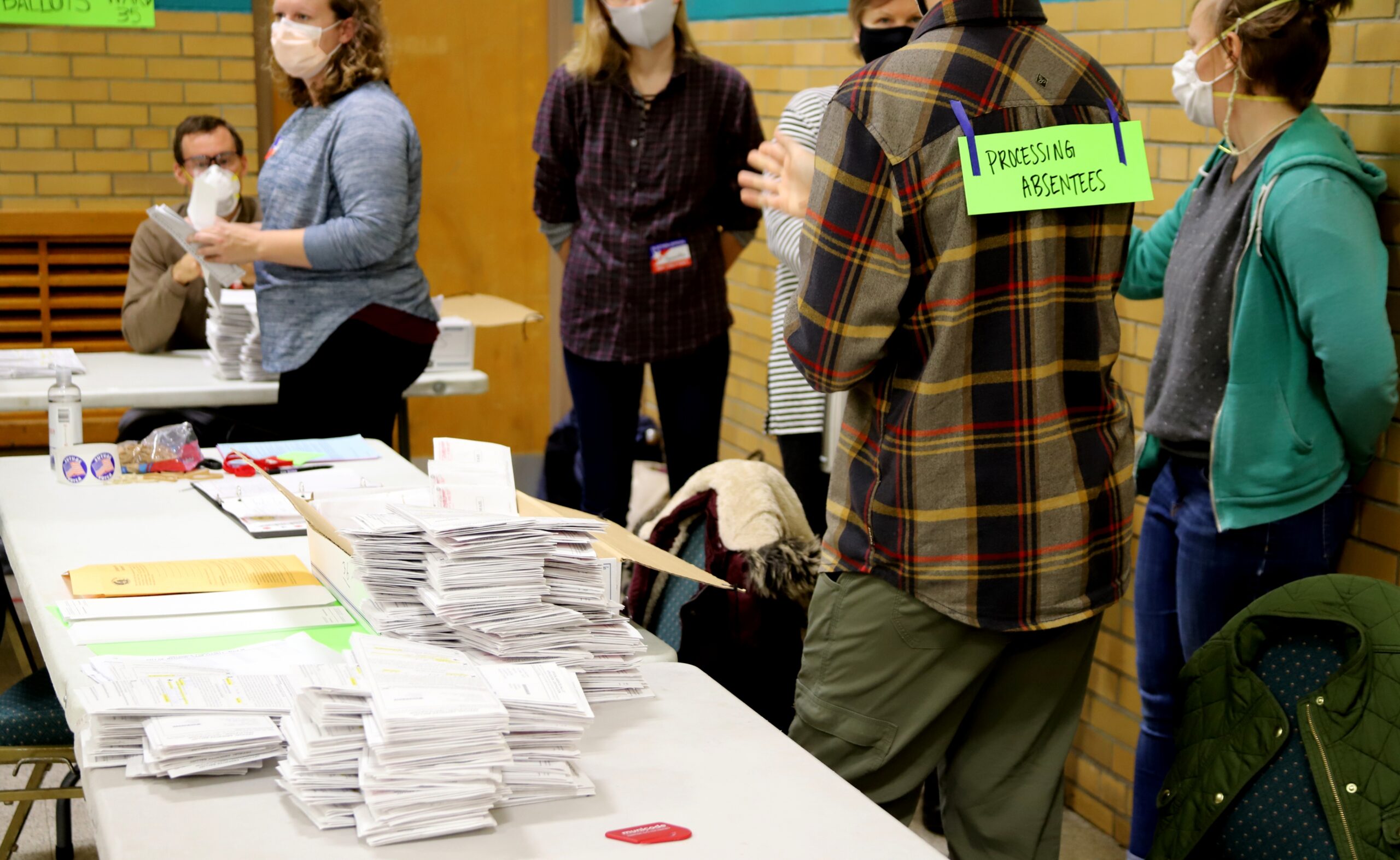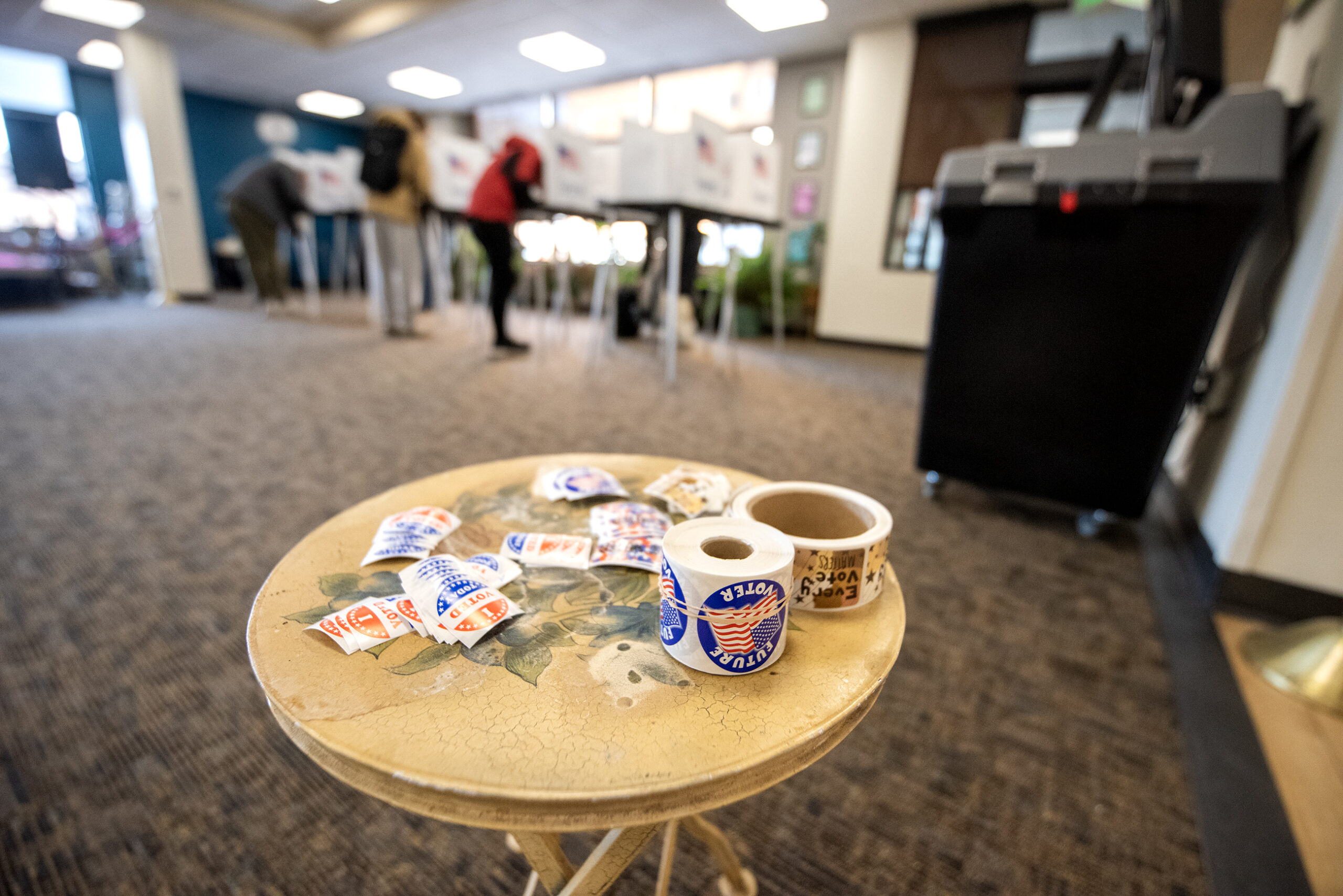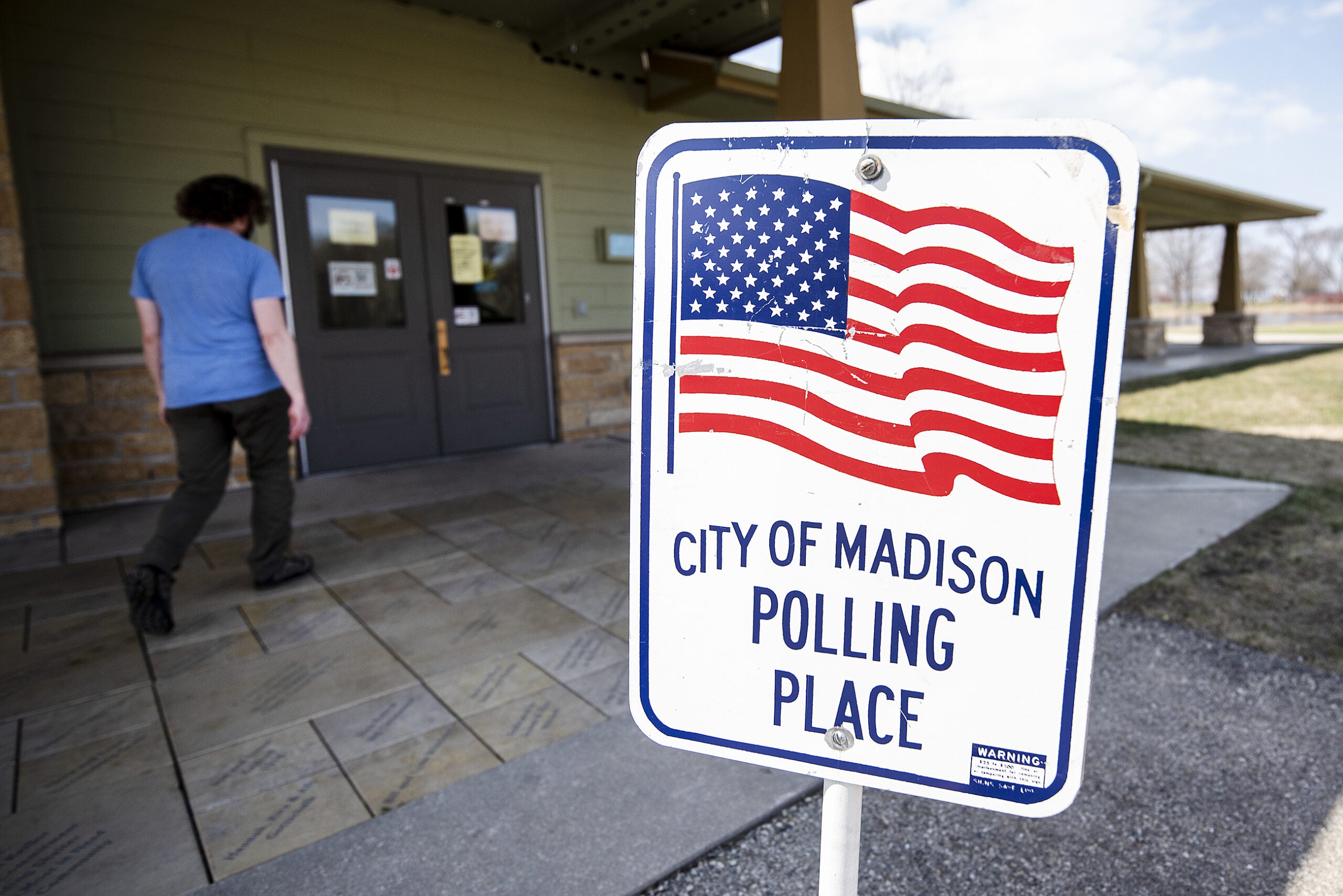Madison’s former city clerk violated city policies during the November election. And in the aftermath of the mistake when 193 absentee ballots went uncounted, a city investigation concluded.
Clerk Maribeth Witzel-Behl resigned earlier this month after Madison Mayor Satya Rhodes-Conway put her on paid administrative leave in March pending an investigation by the city’s human resources department.
City officials released the results of that investigation Tuesday.
News with a little more humanity
WPR’s “Wisconsin Today” newsletter keeps you connected to the state you love without feeling overwhelmed. No paywall. No agenda. No corporate filter.
The uncounted ballots came from three city wards. State elections officials have confirmed those votes would not have changed the results of any race or referendum on the Nov. 5 ballot.
Still, the city’s investigators concluded the oversight reflected a failure to follow several city policies and amounted to a breach of duties laid out in the clerk’s contract.
That includes a failure to “effectively hire, train, and manage employees who independently administer in-person absentee voting, including the management of ballots and equipment” and a failure to communicate with the mayor’s office, city attorney’s office and the Wisconsin Elections Commission about the uncounted ballots, the city’s investigators concluded.
Investigators also wrote that Witzel-Behl appears to have violated city policies requiring accuracy in reporting.
“There is significant evidence to support the contention that her responses to questions given in interviews related to this investigation, her responses to WEC, information she provided to the Office of the City Attorney and information she provided to the Mayor’s Office deviated significantly from, and was inconsistent with, the recall of all other interviewees,” the investigation says.
Witzel-Behl could not immediately be reached for comment on Tuesday.
Report: Clerk’s account differs from other city staff
Several parts of Witzel-Behl’s accounts to city investigators differ from what other city staff described, according to the city’s report.
Elections workers said they first notified Witzel-Behl of uncounted ballots on Nov. 12, while Witzel-Behl said she first learned of uncounted ballots during the week of Dec. 10. And Witzel-Behl said she didn’t realize that the number of uncounted ballots had been “significant” until Dec. 18.
Election staff first discovered a sealed envelope with uncounted ballots from wards 65 and 68 on Nov. 12, according to timeline included in the investigation. Staffers described finding that envelope inside a sealed courier bag while they were cleaning out tabulators after the election.
Then, during the post-election reconciliation process between Dec. 2 and 4, staff discovered another two sealed envelopes with unprocessed ballots from ward 56, according to the report’s timeline.
Witzel-Behl said she verbally directed two staff members on Nov. 12 to contact the state elections commission “if” there were any problems with ballot reconciliation. However, those staff members told city investigators they were never directed to contact the WEC at any point.
On Dec. 18, a clerk’s office staff member whose name is redacted in the report, finally emailed the WEC about ballot reconciliation issues and copied Witzel-Behl on the email.
WEC’s election supervisor responded later that day, asking Witzel-Behl and City Attorney Mike Haas if they were available Dec. 19 to discuss the issue.
“This email led to City Attorney Haas getting additional information from WEC, which was the first he had heard of the issue,” the report says.
Haas was the first person to notify the mayor’s office about the uncounted ballots on Dec. 20, according to the report. Rhodes-Conway and the clerk’s office later disclosed the issue to the public in statements released on Dec. 26.

Mistake could have been avoided, report concludes
Wisconsin-wide election results became at the end of November, when the Wisconsin Elections Commission certified them.
But since those officials weren’t aware of Madison’s 193 uncounted ballots when they met for a statewide canvass on Nov. 29, those ballots remained uncounted, the report says.
That’s despite the fact that there would have been opportunities for the ballots to be tallied before then, Dane County Clerk Scott McDonell told city investigators.
“The frustrating part of this whole situation is that a fix allowing at least some of the ballots to be counted was pretty simple — a short Madison Municipal Board of Canvass meeting where the ballots are opened and counted, with the updated numbers transmitted to the county to validate,” McDonell told investigators. “The new results could have then been transmitted to the state. That could have happened right up until the State certified the election.”
Additionally, the report says the Madison’s clerk’s office could have implemented procedures that would have made it less likely for the bags of uncounted ballots to go unnoticed. That includes keeping a complete, ward-specific log of absentee ballot carrier bags and envelope seals at the polling place, according to the report.
Other than the clerk, no city employees were found to have broken city policies in the course of the problems with uncounted ballots, and the investigators did not recommend any disciplinary action against those employees.
“While errors were made by individual employees, these errors all appeared to be due to failures in leadership, process, and direction,” the investigators wrote. “Rather, these staff appear to be consistently committed to the City vision and goal of making each legal vote count in the City of Madison.”
The city’s investigators did not find evidence that Witzel-Behl had violated any state laws, but they noted that the bipartisan Wisconsin Elections Commission continues to investigate how the ballots went uncounted in November.
During a commission meeting April 17, WEC Chair Ann Jacobs said the commission had already deposed Witzel-Behl and other clerk’s office staff. Jacobs said those depositions raised “additional questions” and added that the commission was planning to depose additional employees of the city and Dane County.
Haas, an expert in election law, has been handling the clerk’s duties on an interim basis since Witzel-Behl was placed on leave. Meanwhile, city officials say they’re conducting a national search for her replacement.
Witzel-Behl had been Madison’s clerk since 2006, after she was appointed by then-Mayor Dave Cieslewicz. Most recently, she was re-appointed by Mayor Rhodes-Conway. Those appointments were confirmed by the Common Council.
Wisconsin Public Radio, © Copyright 2026, Board of Regents of the University of Wisconsin System and Wisconsin Educational Communications Board.






